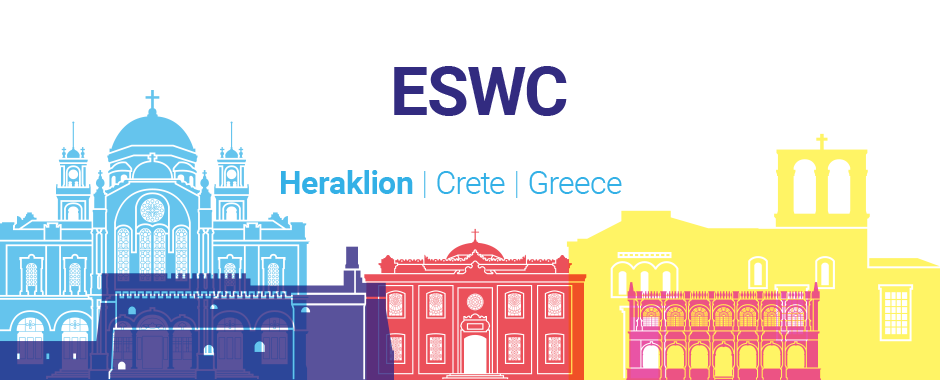The research track of ESWC 2021 is looking for novel and significant research contributions addressing theoretical, analytical, and empirical aspects of the Semantic Web. We also encourage contributions to research at the intersection of the Semantic Web and other scientific disciplines. Submissions to the research track should describe original, significant research on the Semantic Web, and are expected to provide some principled means of evaluation. Specifically, all papers should include evaluations of the approaches described in the paper. We strongly encourage evaluations that are repeatable. We also strongly encourage papers that provide links to the data sets, source code, queries, and other resources.
We have reworked the topics of our research track. Please take a look at the individual calls for papers for these subtracks:
- Data Dynamics, Quality, and Trust
- Knowledge Graphs
- Machine Learning
- Matching, Integration, and Fusion
- NLP and Information Retrieval
- Ontologies and Reasoning
- Problems to Solve Before You Die
- Replication Studies
- Science Data and Scholarly Communication
- Semantic Data Management, Querying, and Distributed Data
Reporting Negative Results
ESWC 2021 invites you to submit papers reporting negative results. Negative results can be submitted to each of the research tracks by selecting the option “Negative Results Paper” in the submission system.
Negative Results paper can, e.g., report on:
- Ideas that look unarguably plausible, but do not work out
- Textbook methods (or methods suggested in highly cited papers) applied to real world problems with surprisingly negative outcomes
What a Negative Results paper needs:
- A thorough analysis of why the results are negative, e.g.,
- Principle limitations of the approaches used
- Wrong (but wide spread) assumptions of an approach
- Evaluation flaws (e.g, the proposed approach was evaluated using a benchmark where the data has certain characteristics which are not given for real world data)
- Clear lessons learned for the community
- We need to change our evaluation protocols
- E.g., we have only evaluated those approaches on clean data so far, but they do not work on noisy data
- There are principled limitations in how we do research in this area
- E.g., there are many supervised approaches for a given problem, but no suitable training data in many cases, so we need to focus on unsupervised approaches instead
- We need to change our evaluation protocols
What a Negative Results paper is not:
- We have tried (insert arbitrary approach here) and it did not work
- We do not understand why it does not work
- We have tried our best but we failed, can we please get a citable publication anyways?
Delineation from the other Tracks
We strongly recommend that prospective authors carefully check the calls of the other main tracks of the conference in order to identify the optimal track for their submission.
Papers that describe the use of semantic web technologies in practical settings should be submitted to the in-use track.
Authors who want to present an interesting industry application but who do not want to submit a full paper should submit to the industry track.
Papers describing concrete resources (datasets, ontologies, vocabularies, annotated corpora, workflows, knowledge graphs, evaluation benchmarks, etc.) should be submitted to the resources track.
Review Criteria
Papers in this track will be reviewed according to the following criteria:
- Originality
- Novelty
- Relevance and impact of the research contributions
- Soundness
- Design and execution of the evaluation of the work
- Clarity and quality of presentation
- Grounding in the literature
The conference explicitly invites the submission of papers which present innovative approaches even if these approaches do not fully outperform the state of the art.
Submission
We refer to the important dates and submission guidelines.
Authors will have the opportunity to submit a rebuttal to the reviews to clarify questions posed by program committee members.
Program Chairs
Katja Hose, Aalborg University, Denmark
e-mail: khose(at)cs.aau.dk
Heiko Paulheim, University of Mannheim, Germany
e-mail: heiko(at)informatik.uni-mannheim.de
Acknowledgements
The text of this CfP is partially based on the Call for Papers from ESWC 2020 by Sabrina Kirrane and Axel Ngonga.
*Call for Papers was last updated on October 10th, 2020.
